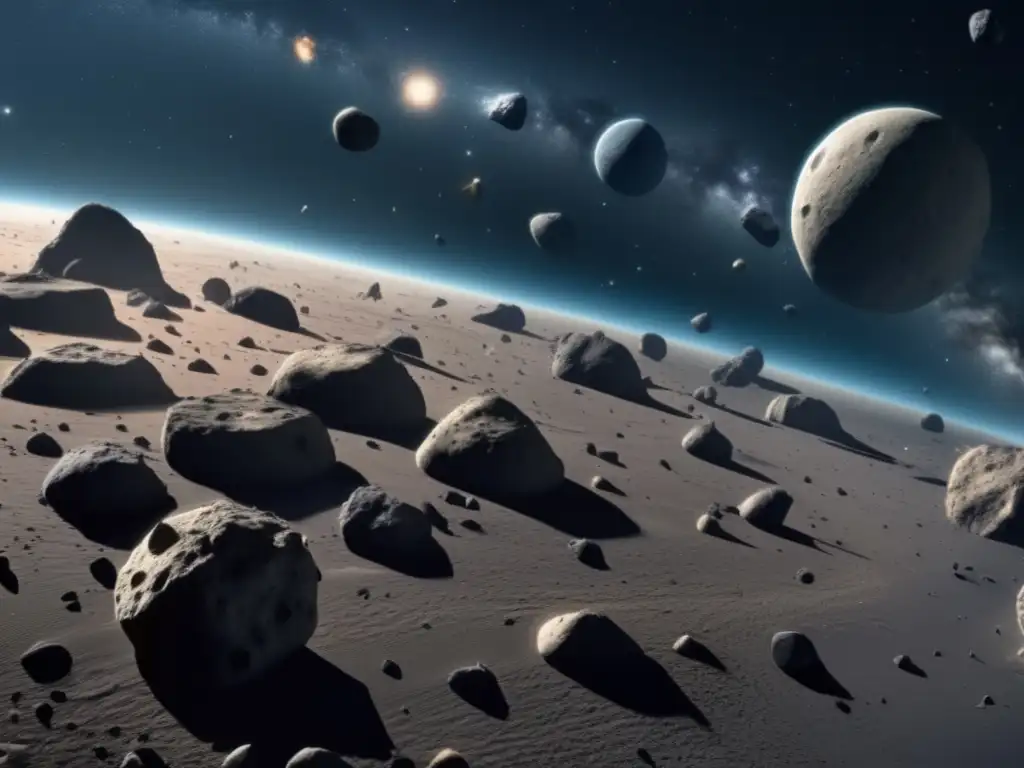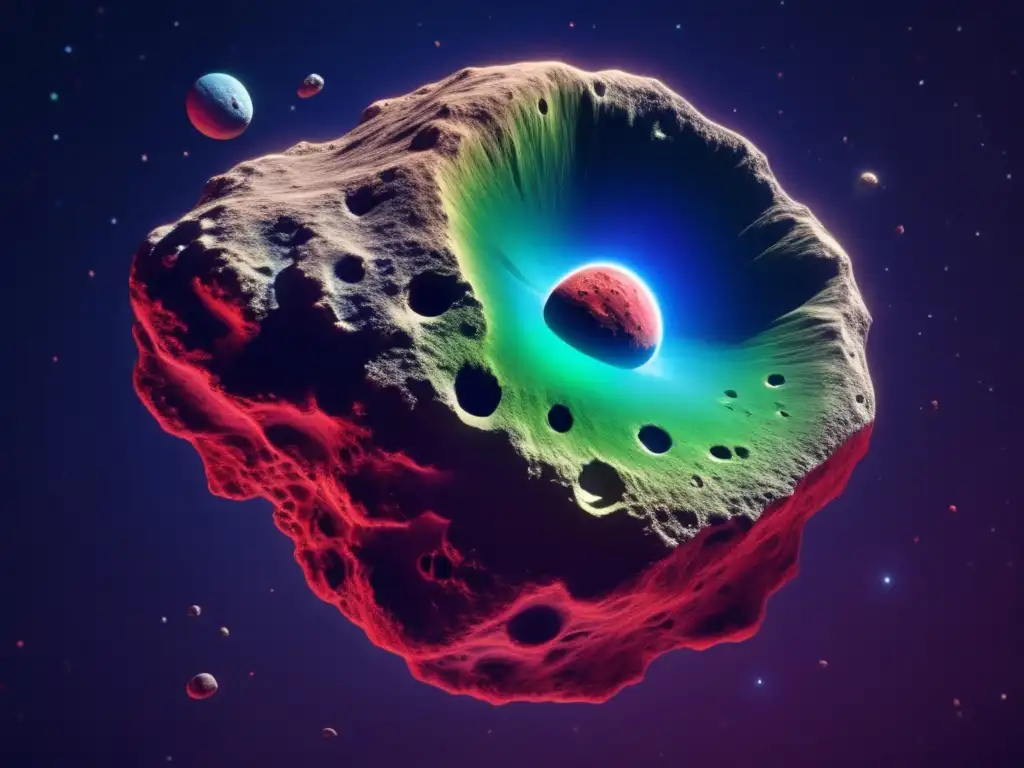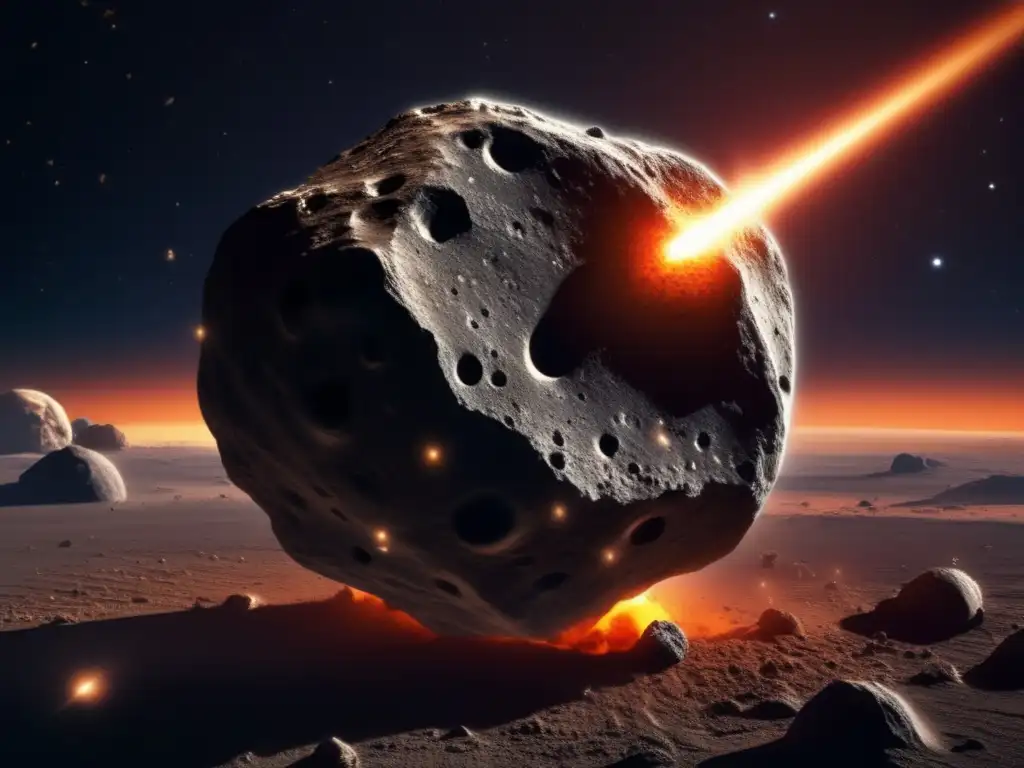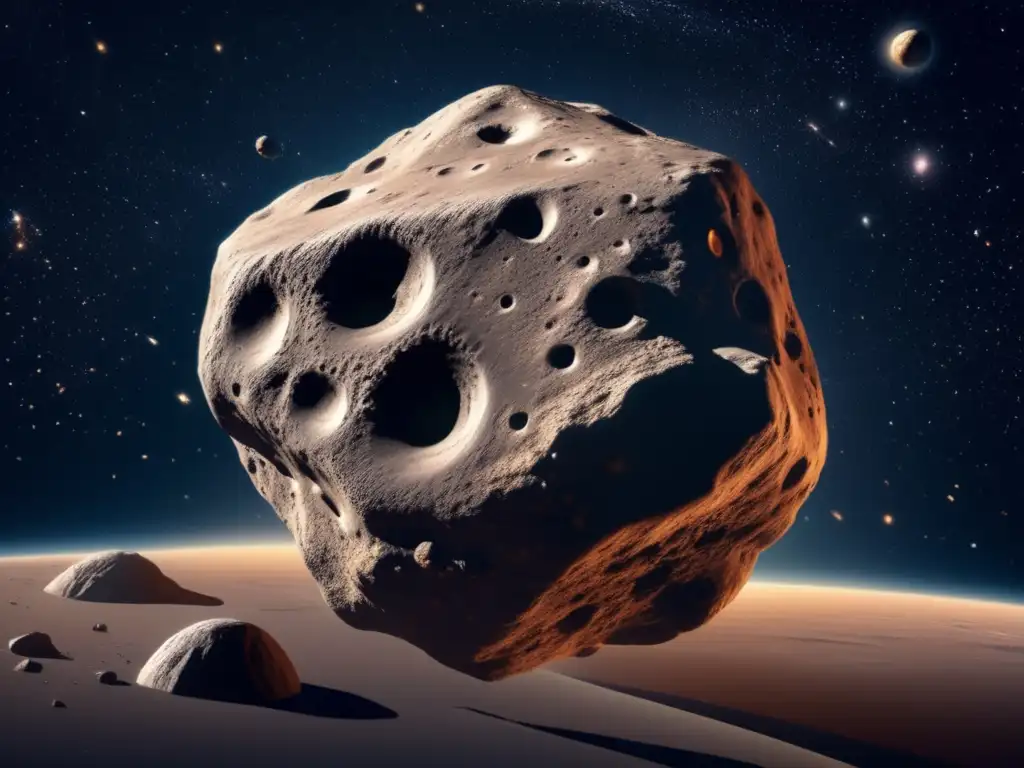Asteroids: The Cosmic Cradles Of Life?

Introduction
For a long time, scientists believed that life on Earth originated from microbes that floated on asteroids and comet debris. However, this theory has been heavily debated and lacked concrete evidence until recently. In the past few years, several missions have been launched to asteroids, and scientists have discovered that they might hold the key to understanding how life began. This article explores the possibility of asteroids as cosmic cradles of life.
What are Asteroids?

The Formation of Asteroids
Asteroids are small, rocky objects that orbit around the sun. They are remnants of the early solar system and likely formed from the same material that shaped the planets. The early solar system was a chaotic place, with many collisions between these objects. Some of these collisions led to the formation of larger bodies, including the planets, while others were shattered into smaller fragments, resulting in the formation of asteroids.
The Classification of Asteroids
Asteroids are classified based on their composition, primarily into three categories: C-type (carbonaceous), S-type (silicaceous), and M-type (metallic).
The Exploration of Asteroids
Several missions have been launched to explore asteroids, including NASA's OSIRIS-REx mission, which collected a sample from the asteroid Bennu in October 2020. Japan's Hayabusa mission also returned samples from the asteroid Itokawa in 2005. These missions provide valuable insights into the composition and potential of asteroids.
Are Asteroids Linked to the Origin of Life?

Panspermia Theory
The panspermia theory suggests that life on Earth may have originated from microbial life forms that hitchhiked on asteroids and comets. These microbes could have survived the harsh conditions of space and eventually landed on Earth, starting the process of evolution. The discovery of extremophile organisms that can survive in extreme conditions on Earth, such as underground caves or hot springs, supports this theory.
Experiments on Asteroids
In 2010, scientists sent a spacecraft called Stardust to collect samples from the comet Wild 2. The spacecraft brought back some unexpected results: it contained glycine, an amino acid commonly found in proteins, and other organic compounds like alkanes, alcohols, and esters. This discovery opens up the possibility that asteroids and comets could contain the building blocks of life.
Asteroids as Laboratories
Asteroids could also potentially serve as laboratories for the study of the origin of life. By studying the composition and properties of asteroids, scientists could gain insights into the early conditions of the solar system and the formation of life. Moreover, because asteroids are relatively small and easy to sample, they could provide an excellent opportunity for experimentation and testing of theories related to the origin of life.
Could Life Exist on Asteroids?

Survival on Asteroids
The conditions on asteroids are harsh, with high levels of radiation, extreme temperature swings, and no atmosphere or water. However, some extremophile organisms have proven resilient in even more challenging environments on Earth. The discovery of similar organisms on asteroids cannot be ruled out, as they could potentially survive in dormant states until conditions become favorable for growth and reproduction.
Asteroids as Habitats
Studies have also suggested that asteroids could contain subsurface water and organic compounds, which could create habitable conditions for microorganisms. A recent study conducted by NASA scientists found that C-type asteroids have a higher probability of containing subsurface water, making them potential habitats for life.
The Search for Extraterrestrial Life
The possible existence of life on asteroids has implications for the search for extraterrestrial life. Scientists are continually searching for signs of life beyond Earth, and the possibility of microbial life forms on asteroids opens up new avenues for exploration within our solar system.
Frequently Asked Questions

-
Could life have originated from asteroids?
The panspermia theory suggests that life may have originated from microbes that hitchhiked on asteroids and comets. The discovery of organic compounds and amino acids on comets and asteroids, as well as the discovery of extremophiles living in harsh environments on Earth, supports this theory.
-
Could life exist on asteroids?
While the conditions on asteroids are harsh, some extremophile organisms have shown resilience in even more challenging environments on Earth. The discovery of subsurface water on asteroids and organic compounds like glycine suggests that asteroids could contain the building blocks of life and create habitable conditions for microorganisms.
-
What implications could the discovery of life on asteroids have?
The discovery of life on asteroids would greatly impact our understanding of the origin of life and the search for extraterrestrial life. It could also have implications for future space exploration and the potential for colonizing other planets or asteroids.
-
What are some of the challenges of exploring asteroids?
Asteroids are small and challenging to locate, making it difficult to send spacecraft to their exact location. The harsh conditions on asteroids also pose a challenge for spacecraft operations, as they must be equipped with specialized instruments to collect samples and conduct experiments.
-
Are there any upcoming missions to explore asteroids?
Yes, several missions are currently underway or planned to explore asteroids. NASA's DART mission will impact the asteroid Didymos in September 2022, while the Lucy mission will study Jupiter's Trojan asteroids. Other missions, such as Psyche and the Europa Clipper, will study asteroids and moons with potential habitable conditions.
Conclusion
The possibility of asteroids as cosmic cradles of life raises many questions and provides new opportunities for scientific inquiry and space exploration. As we continue to study asteroids and learn more about their composition and properties, we may gain new insights into the origin of life and the potential for extraterrestrial life. The discovery of life on asteroids would be a groundbreaking accomplishment that could change our understanding of the universe forever.
Thank you for reading this article on Asteroids: The Cosmic Cradles of Life? We encourage you to share your thoughts in the comments section below and explore more asteroid-related articles on www.asteroidrealm.com.
Additional Resources

Here are some additional resources for those interested in delving deeper into the asteroid topic:
 Life Beyond Earth: The Potential Of Asteroids
Life Beyond Earth: The Potential Of Asteroids Tiny Life, Big Impact: Microorganisms And Asteroids
Tiny Life, Big Impact: Microorganisms And Asteroids Panspermia: The Interstellar Journey Of Life Via Asteroids
Panspermia: The Interstellar Journey Of Life Via AsteroidsIf you want to discover more articles similar to Asteroids: The Cosmic Cradles Of Life?, you can visit the Asteroids and Extraterrestrial Life category.
Leave a Reply

Articulos relacionados: